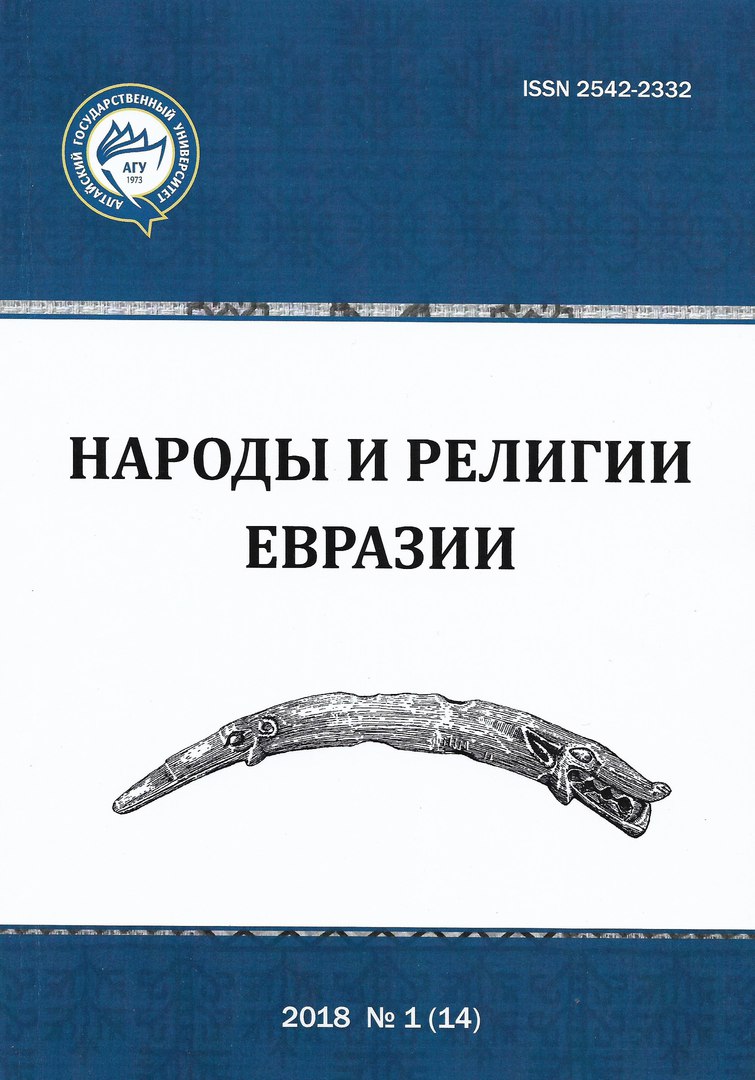Vaishnavism: strategies for construction and conceptualization
Main Article Content
Abstract
Background of the issue is heterogeneity of theoretical understanding and identity of Gaudiya Vaishnavism. Subject of study: dynamics of the modification of the conceptual categories of Vaishnavism. Methods: general logical, common and specific scientific. Results: phenomenological sociology of religion is confirmed where the sacred is represented as a special construction of reality.
Modern globalization and the fundamental role of science in the all-around development of society require from religious and spiritual traditions, that claim to be universal, certain mode of self-expression and self-identification at various levels: worldview, epistemological, ethical, practical, etc.
The interaction of the Vaishnava tradition with Western society influences not only it's self-knowledge, but also self-presentation, especially in the situation of coexistence with different cultures, since in a situation of globalization Vaishnavism exists and spreads beyond India.
The social image of ISKCON in the context of social construction is the dynamics of its intersubjective structures, that are formed in the processes of internalization, esternalization and objectification.
Downloads
Metrics
Article Details
References
Бхактиведанта Свами Прабхупада. За пределами религии // Путешествие вглубь себя. М., 1997. 283 c.
Иваненко С. И. Новые тенденции в жизни Общества сознания Кришны в России // Kenston Institute [Электронный ресурс]. — URL: http://www.keston.org.uk/_russianreview/ edition63/03-Ivanenko-about-Induism.htm (дата обращения: 22.09.2017).
Мюллер М. Шесть систем индийской философии. М., 1995. 448 c.
Тимощук А. С. Ведийская культура: сущность и метаморфозы. Владимир, 2002. 148 c.
Тимощук А. С. Концептуализация науки и религии в гаудия вайшнавизме // Феномен религии и религиозности: концептуализация в академическом философском религиоведении / под ред. Е. И. Аринина. Владимир, 2015. С. 277-322.
Фролов М. Закон о миссионерской деятельности (выступление 10 июля 2016 г. в Центре индийской культуры) // [Электронный ресурс]. URL: https://www.youtube.com/ watch?v=uy8fzSufq-E (дата обращения: 22.09.2017).
Bhaktivedanta Swami Prabhupada. Bhagavad-gita class (7.3) — Bombay, February 18, 1974 // Bhaktivedanta Vedabase Folio Bound Views Version 3.1.
Bhaktivedanta Swami Prabhupada. Interview with LA Times Reporter About Moon Trip — December 26, 1968, Los Angeles // Bhaktivedanta Vedabase Folio Bound Views Version 3.1.
Bhaktivedanta Swami Prabhupada. Sri Caitanya-Caritamrita // Bhaktivedanta Vedabase Folio Bound Views Version 3.1.
Bhaktivedanta Swami Prabhupada. Srimad Bhagavatam lecture 1.16.12 — Los Angeles 9, 1974 // Bhaktivedanta Vedabase Folio Bound Views Version 3.1.
Bhaktisiddhanta Saraswati. Organized // Stephen Knapp site [Электронный ресурс]. URL: http://www.stephen-knapp.com/organized_religion.htm (дата обращения: 22.09.2017).
Dandekar R. N. Vaishnavism: an overview // Lindsay J. MacMillan Encyclopedia of
Religion. MacMillan, 2005. P. 9498-9500.
Hawley J. S., Narayanan N. The Life of Hinduism. University of California Press, 2006. P. 10-11

